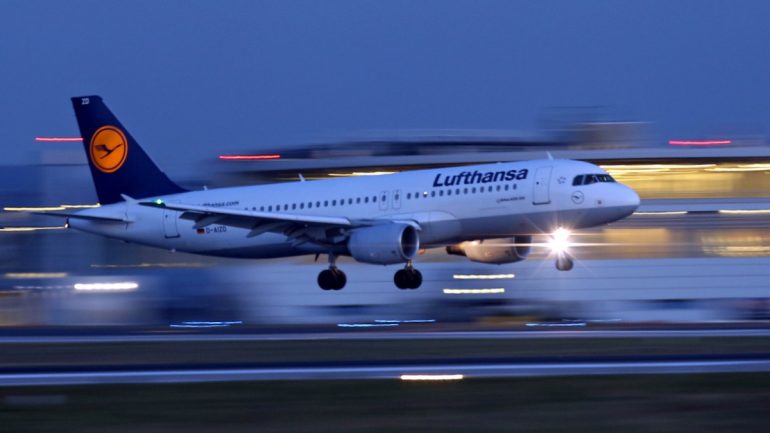It’s a debate everyone knows by now – on business trips or before going on vacation: Should it be a plane, or can’t you even take a more climate-friendly train? On the popular Berlin–Frankfurt route, for example, a flight passenger is responsible for 127 kilograms of greenhouse gases, while rail passengers cause only less than eleven kilograms.
Given these differences, Green candidate Annalena Berbock banned short trips during the election campaign. But this demand soon disappeared from the Greens’ election campaign. Because anyone who travels a lot knows: The train is sometimes a good option—but often not one, not yet. It was calculated in detail by the environmental protection organization Greenpeace: for the 150 most important routes within the European Union that can be reached in one to two hours by plane, but which can also be reached by train. Result: Sometimes rail travel works out well, but in many cases the general restrictions on short journeys make travel nearly impossible.
A third of these connections can be made by train in less than six hours – this is an acceptable and competitive travel time for Greenpeace, for example Amsterdam–Paris (3:23 h), Paris–Frankfurt (3:23 h). 50 hours) or Venice – Naples (5: 10 hours). The organization has demanded that flights should be banned on all these routes. Especially on 21 of the 150 most important travel connections where the train takes less than four hours, such as Madrid-Barcelona (2:30 hours). The survey shows that on 23 routes, the passenger will be on the road for more than 16 hours.
After reviewing all the timetables criticized by Greenpeace, land-based travel has been made more difficult by increasingly poor international train connections. NS EUROSTAR For example, Great Britain and France have significantly reduced their tunnel trains. Only buses now run between Sweden and Norway. And on the Frankfurt–Lyon route, which is an important connecting axis between Germany and France, there is only one direct train per day – exemplifying how passengers changing from airplane to train have to grapple with cumbersome transfers. Is. At least night train connections are becoming attractive again: Vienna-Paris and Zurich-Amsterdam start in December.
Lufthansa has canceled at least Nuremberg-Munich route
Incidentally, according to Greenpeace, Germany bears “the greatest responsibility” for air traffic in Europe: a third of the 150 most frequently used EU routes end or begin in this country. And for many people, the travel time when using the train is less than six hours – in the Frankfurt-Berlin example, it’s 3 hours and 54 minutes. And get from the city center to the city center, without checking in, waiting at the gate and without using the S-Bahn, as they insist on the Environmental Protection Association. This in turn coincides with the attitude of the Federal Ministry of Transport, previously led by Andreas Scheuer (CSU): there they do not want to ban domestic flights, but they want to ease them through better connections and financial incentives. Huh. In fact, from next year investment funds in railways will exceed the road (9.3 billion euros compared to 8.3 billion euros) for the first time, and the sales tax for long-distance train tickets has also been reduced. Seven percent, on the other hand the air traffic tax increased slightly.
Incidentally, Lufthansa has already responded in one case: the Munich-Nuremberg connection within Bavaria was canceled this summer – but the alternative clearly shows the difficulty: an express bus now runs between the two airports. Because there is still no express train stopping at Munich airport. , which the airline continued to criticize. After all, this option is also comparatively environmentally friendly: an airplane in domestic operation emits 214 grams of climate-damaging greenhouse gases per passenger kilometer. A car still weighs 154 grams – a long-distance train or long-distance bus, on the other hand, only 29 grams.
Despite these differences and ongoing debates, flight is less responsible for climate change than some might believe. Global air traffic CO₂, through contrails or soot, contributes 3.5 percent to global warming as it is caused by humans, a large international study involving the German Aerospace Center showed a year ago. Generating electricity and heat from coal, gas and oil and burning gasoline and diesel while driving are far more serious factors.

Introvert. Proud beer specialist. Coffee geek. Typical thinker. Pop culture trailblazer. Music practitioner. Explorer.





